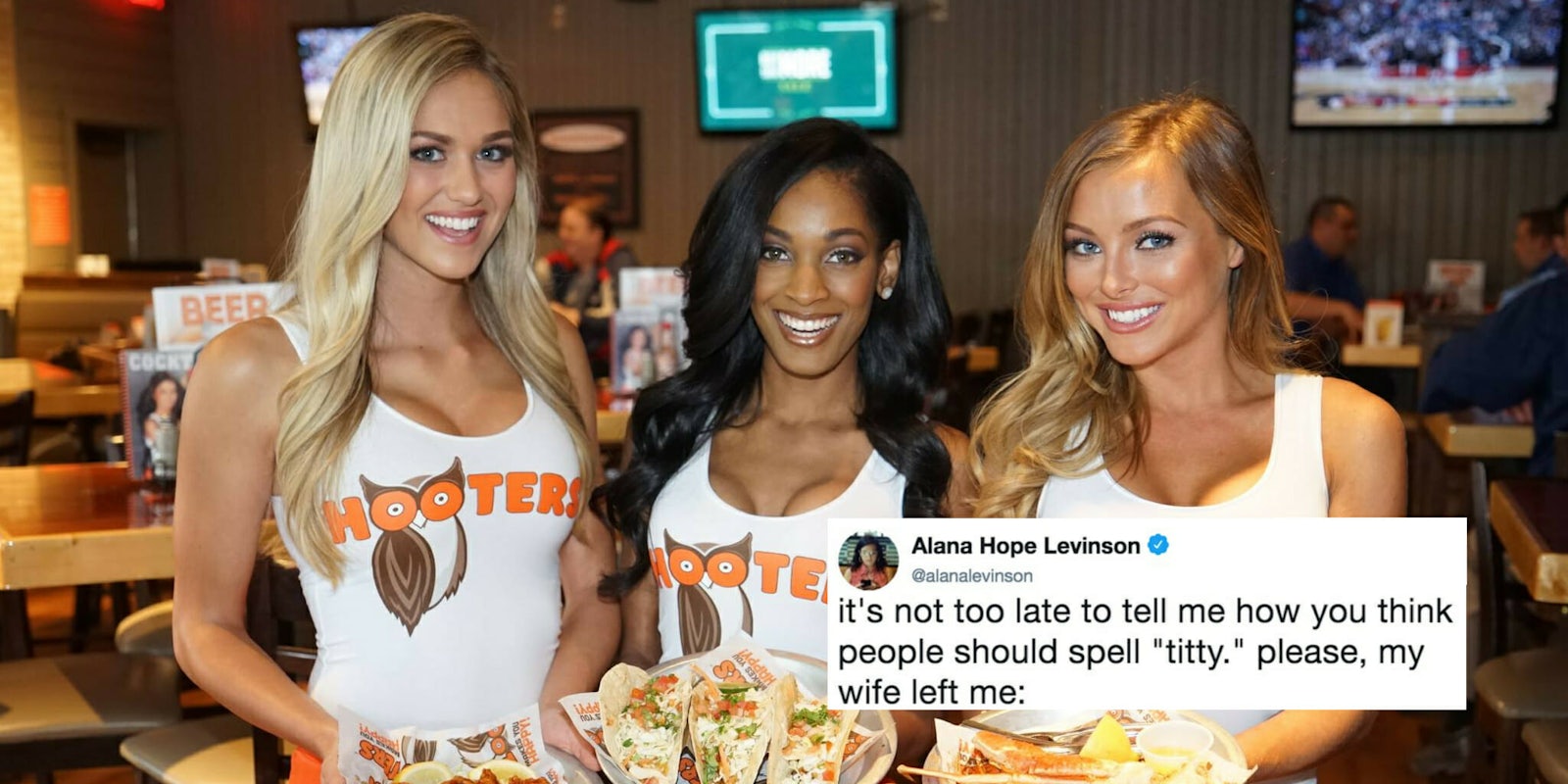Think Hooters is doomed, that it’s no longer raking in the big bucks with its busty waitstaff because “millennials aren’t that into boobs?” Think again, and look no further than the English language, and the ways in which this generation is translating their breast obsession.
For Mel Magazine, deputy editor Alana Hope Levinson looked at how millennials are talking about “titties” to refute this now-exhausted anti-boob narrative surrounding Hooters’ failing business model. More specifically, she analyzed how the language around breasts is changing, and yet, providing ample, padded support for the pro-boob establishment.
Sure, millennials might not be calling ’em boobs, or even tits (which Levinson found to have been only used for animals’ nipples until 1928, according to Oklahoma State University linguistics professor Dennis Preston). But they are coming up with more creative ways to flash their devotion for the breast.
I dunno but it feels like there’s a drastic difference between “tit” and “titty” and their connotations. I’d read an essay on it
— david but in survival mode (@Aerocles) August 15, 2018
https://twitter.com/implicitpower/status/1029789451948646401
We’ve got tiddies, and its variations, which Levinson reports to be a less harsh pronunciation of the word.
tiddy
— . (@swordsjew) August 15, 2018
https://twitter.com/dave_schilling/status/1029784108719792128
tiddie
— . (@swordsjew) August 15, 2018
Maybe a third or fourth form, spelled “titdy.”
wait. alana it’s titdy ask me and @sexualjumanji
— helen (@helen) August 16, 2018
https://twitter.com/sexualjumanji/status/1030065865050472451
And even “tatties,” which sound more like a cute stick-and-poke tattoo name than anything else.
https://twitter.com/alanalevinson/status/1029829097906561024
Other accepted spellings and pronunciations include “bitty,” “titay,” “tibby,” and “tith-ee.”
Yes, language is nuanced, but it appears no amount of actual scientific analysis of breast obsession will revive Hooters’ business model. Might we suggest the restaurant chain pivot to therapy?
H/T Daily Mail


